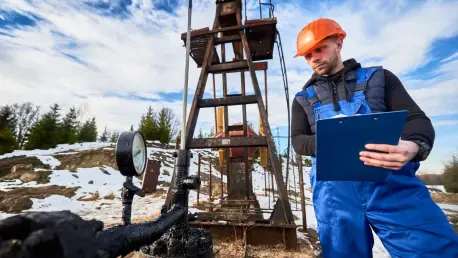In a striking turn of events that has reverberated through Europe’s legal and geopolitical corridors, a Polish court recently made the controversial decision to deny the extradition of a Ukrainian suspect linked to the 2022 Nord Stream pipeline explosions, severely damaging critical infrastructure carrying Russian gas to Europe. This incident has been a flashpoint amid the ongoing Ukraine conflict, amplifying tensions over energy security and international relations. The suspect, identified only as Volodymyr Z., faces serious allegations in Germany of conspiring to commit an explosives attack and engaging in acts labeled as “anti-constitutional sabotage.” Yet, Poland’s refusal to hand him over raises profound questions about the intersection of law, state sovereignty, and regional politics. This development not only complicates Germany’s pursuit of justice but also underscores the deep divisions within Europe on how to address such high-stakes incidents tied to broader conflicts.
Legal Dimensions of the Case
Unpacking the Polish Court’s Rationale
The Polish court’s ruling on October 17 to reject Germany’s extradition request for Volodymyr Z. has sparked intense debate across legal and political spheres. Judge Dariusz Lubowski, presiding over the case, declared the German application inadmissible, introducing a nuanced argument about the suspect’s potential “functional immunity.” The reasoning hinges on the possibility that if Volodymyr Z. acted under the direction of the Ukrainian state, he might be shielded from individual prosecution. This perspective posits that accountability in such scenarios rests with the state, not the person carrying out its directives. Such an interpretation challenges conventional notions of criminal responsibility in international law, particularly in cases tied to geopolitical conflicts. It suggests a protective stance toward actions perceived as part of a broader wartime strategy, even when they involve significant infrastructure damage. The court’s decision thus reflects a prioritization of state sovereignty over the obligations of international legal cooperation.
Implications of Immunity and State Responsibility
Delving deeper into the Polish court’s stance, the concept of immunity introduces a complex layer to the Nord Stream case. If Ukraine were indeed behind the attack—an allegation the country officially denies—then the legal framework shifts dramatically, focusing on state responsibility rather than individual guilt. This argument creates a barrier to prosecuting Volodymyr Z. under standard criminal law, as it frames his potential actions within the context of state-sanctioned operations during conflict. Moreover, this ruling sets a precedent that could influence how similar cases are handled across Europe, potentially undermining mechanisms like the European arrest warrant. It highlights a tension between national judicial autonomy and the collective pursuit of justice in transnational crimes. For Germany, seeking accountability for the pipeline explosions, this legal hurdle represents a significant setback, forcing a reevaluation of how to address such acts when they blur the lines between warfare and crime.
Geopolitical Underpinnings and European Reactions
Poland’s Stance on Nord Stream and National Interests
Poland’s decision to block the extradition of Volodymyr Z. cannot be divorced from its long-standing opposition to the Nord Stream pipelines, viewed by many in Warsaw as a geopolitical tool strengthening Russian influence over Europe. Prime Minister Donald Tusk has been vocal in criticizing the very existence of the pipelines, framing their construction as the root issue rather than their destruction. His public statements following the court’s ruling, including a social media declaration that the case was effectively closed, underscore a belief that extraditing the suspect to Germany would not align with Poland’s national interests. This position reflects a broader consensus among Polish authorities prioritizing regional security concerns over international legal collaboration in this specific matter. The pipelines, seen as a symbol of energy dependency on Russia, have long been a point of contention, and Poland’s protective approach toward a Ukrainian suspect reveals a strategic alignment with broader anti-Russian sentiments amid the ongoing conflict.
Broader European Perspectives and Legal Challenges
Across Europe, the Nord Stream case has exposed varying national perspectives on balancing justice with geopolitical considerations, as seen in parallel legal proceedings. In Italy, for instance, another Ukrainian suspect, Serhii K., faced a delayed extradition to Germany due to procedural issues raised by the country’s top court, signaling a pattern of resistance among some nations to Germany’s prosecutorial efforts. Germany, in contrast, has adopted a measured response, with Foreign Minister Johann Wadephul emphasizing respect for judicial independence in foreign jurisdictions. The German justice ministry and federal prosecutor’s office have refrained from commenting on the Polish verdict, showcasing diplomatic restraint despite the setback. This divergence in approaches illustrates the complexity of addressing an incident that transcends mere criminality, touching on energy security, wartime dynamics, and historical grievances. The Nord Stream explosions thus serve as a litmus test for Europe’s ability to navigate legal accountability within a fractured political landscape.
Reflecting on a Divisive Chapter
Looking back, the Polish court’s refusal to extradite Volodymyr Z. to Germany marked a pivotal moment in the aftermath of the 2022 Nord Stream pipeline explosions. This decision not only highlighted the intricate clash between legal accountability and geopolitical priorities but also exposed the deep-seated divisions within Europe over how to handle such transnational issues. Poland’s protective stance, rooted in both legal arguments about immunity and political opposition to the pipelines, stood in stark contrast to Germany’s persistent, yet restrained, push for justice. As the fallout from this ruling lingered, it became clear that resolving such cases demanded a delicate balance of respecting national interests while fostering international cooperation. Moving forward, European nations needed to consider establishing clearer frameworks for addressing acts that blur the lines between crime and statecraft, ensuring that justice could be pursued without exacerbating regional tensions. This chapter, though closed in a legal sense, opened a broader dialogue on navigating the complex interplay of law and politics in times of conflict.









